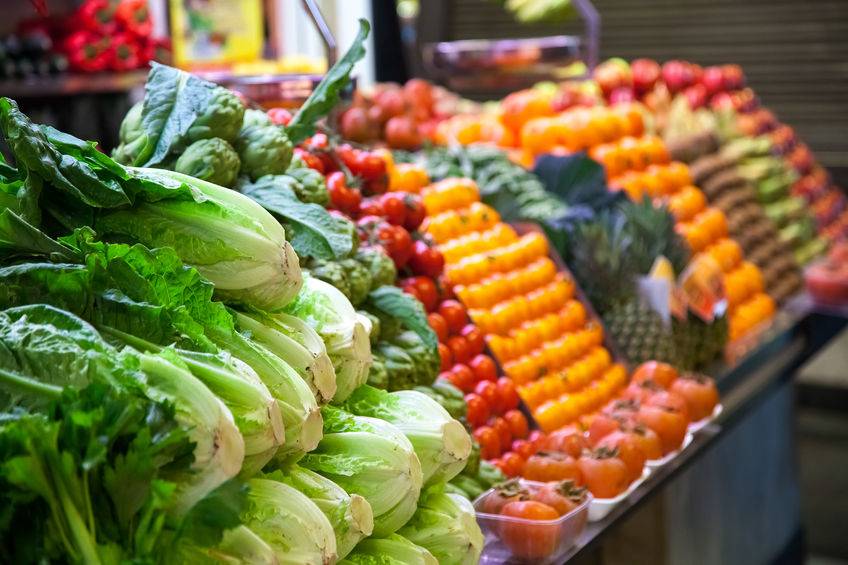
Northern Ireland’s future food supply runs the risk of "serious disruption" because the UK government is "neglecting" the issue in Brexit talks, according to a new report.
The Chartered Institute of Environmental Health (CIEH) and City, University of London joint report warn there has been no planning for how food trade will fit into any changes to the border between Northern Ireland and the Republic of Ireland.
The report shows why a “frictionless” border is vital to the important food trade into, out of and through Northern Ireland.
The border between Northern Ireland and the Republic of Ireland is currently, in effect, invisible. The report warns that any future deal which requires border checks and infrastructure raises serious food safety, standards, crime and fraud risks.
New arrangements could increase food prices, reduce access to healthy food, cause transport delays and harm agri-food businesses and farmers.
Indeed, the Ulster Farmers’ Union (UFU) says the movement of goods and access to labour across the border after Brexit are key concerns for farmers and dairy processors.
UFU dairy chairman William Irvine said Northern Ireland’s unique situation and the complexities of what will be a land border between the UK and EU are well recognised.
“A large number of dairy farmers here are members of co-ops in the South. Clearly, there are strong links between farmers here and processors south of the border, and indeed vice versa,” Mr Irvine explained.
'Food Brexit'
The report sets out four ways in which either the current arrangements can be guaranteed or any future border can be truly “frictionless”.
It says the UK could stay in the Customs Union and the Single Market, or reach a mutually agreed future customs arrangement between UK and EU that achieves the same thing.
The report also suggests that the whole of the UK commits to future regulatory alignment. Or, simply, a set of unique arrangements is developed for Northern Ireland.
The authors urge the UK Government to publish plans for what “food Brexit” will look like for Northern Ireland, and call for the UK, the EU and the Republic of Ireland to come together to overcome the issues.
“Prime Minister Theresa May’s commitment to a ‘frictionless border’ cannot be fudged over food,” said report co-author Professor Tim Lang, of the Centre for Food Policy at City, University of London.
“The Northern Ireland food system urgently needs some clear decisions to be taken by all sides in respect of ‘food Brexit’. This important issue is not, at present, receiving the attention that it deserves, and this failure of food governance should not be allowed to continue.”
'Criss-cross trade'
The report argues that food is central to the economy of Northern Ireland, and the continuing supply of safe, high-quality, healthy food is currently dependent on the absence of border controls between Northern Ireland, EU member state the Republic of Ireland, Great Britain and the rest of the EU.
It cites figures that show hundreds of thousands of tonnes of food criss-cross these borders annually, free from inspection because of shared, underpinning EU single market regulation.
Northern Ireland exports £1.15 billion worth of food to the EU, about 70 per cent of which goes to or through the Republic of Ireland.
Great Britain is the biggest single market for the Northern Ireland food and drink processing sector, and Northern Ireland also depends on substantial food imports, especially of fruit and vegetables.
Nearly 40 per cent of the UK’s beef exports go to Republic, while 50 per cent of Irish beef exports are marketed in the UK.
In terms of sheep, the fact that over 40 per cent of Northern Ireland’s lambs are processed in the Republic of Ireland and 90 per cent of the UK’s lamb exports are destined for the European market show that there is a lot hanging on achieving a progressive free trade arrangement.
The Northern Ireland agri-food sector employs 100,000 people, with the food and drink sector the country’s most important manufacturing industry.
Border technology
The report also dismisses the “vague and unrealistic” the idea that technology could be used to check food crossing between Northern Ireland and the Republic of Ireland.
Gary McFarlane, co-author and the CIEH’s Director in Northern Ireland, said: “Technological solutions may or may not be possible in the future, but they do not exist at present. Furthermore, technological solutions cannot replace the need for food inspection by qualified and competent food professionals.
“Proper food inspection requires someone to look inside lorries and make judgements about critical food safety and standards.”
The authors say there is little contingency planning being done for Brexit’s impact on food in Northern Ireland and the preparation that is being done is being undertaken by public health officials, which they say is unacceptable.
Tony Lewis, co-author and Head of Policy at the CIEH, said: “Port health officers, customs officers and other trade and health-related professionals cannot resolve political difficulties, nor should responsibility for resolving practicalities be placed at their door.
“The responsibilities of such professionals are to the common good, including the public’s safety and health.”
